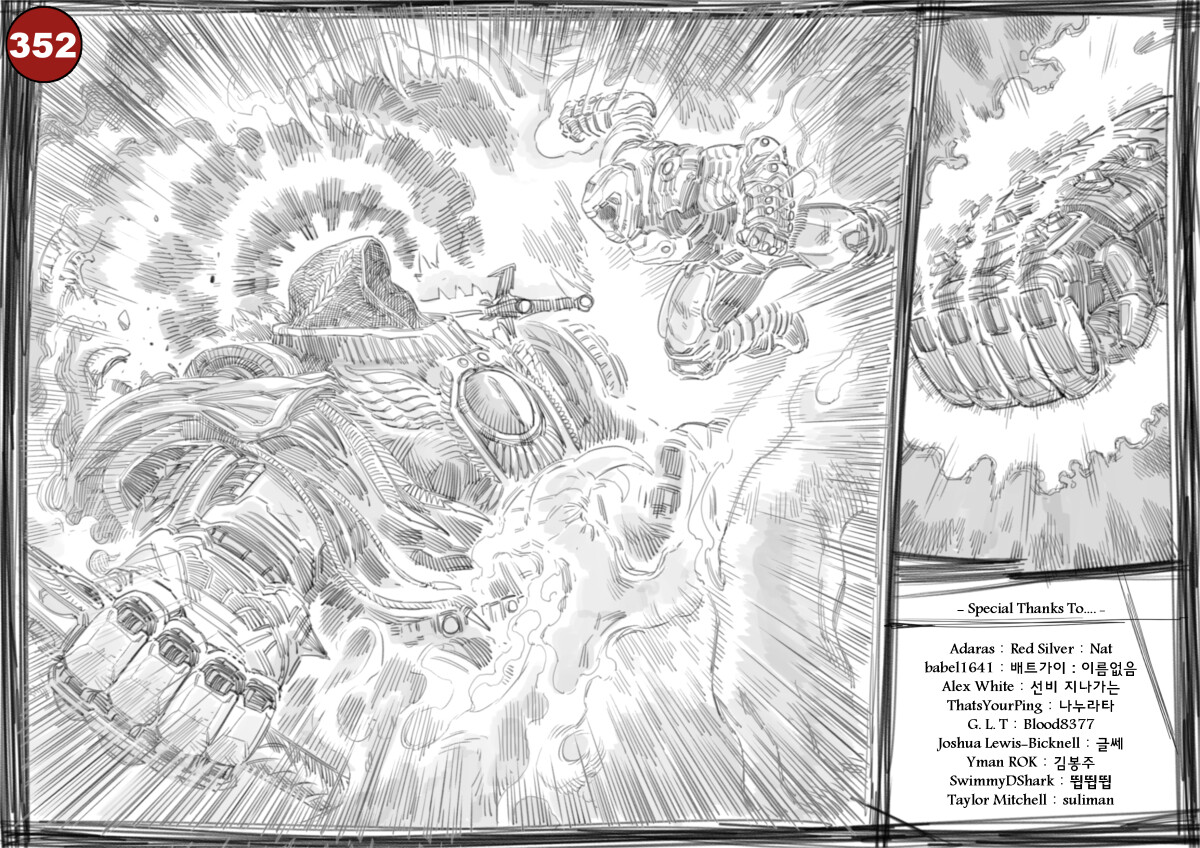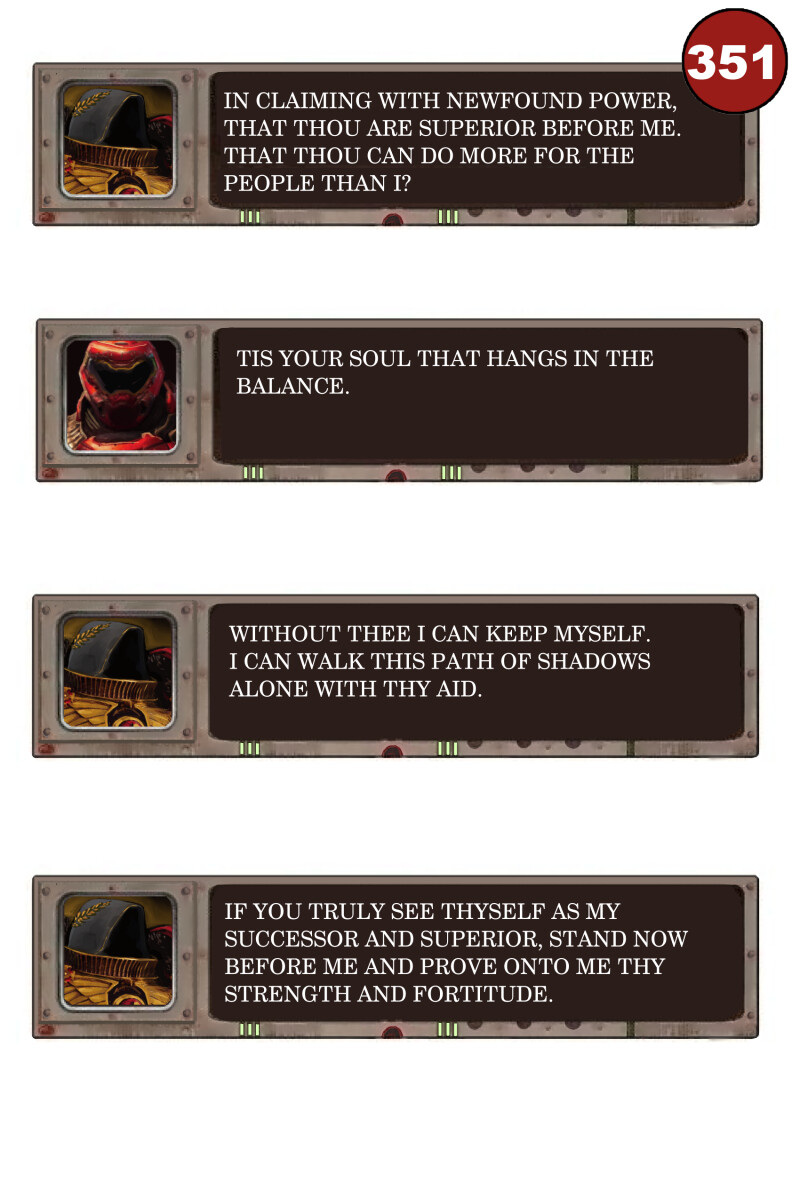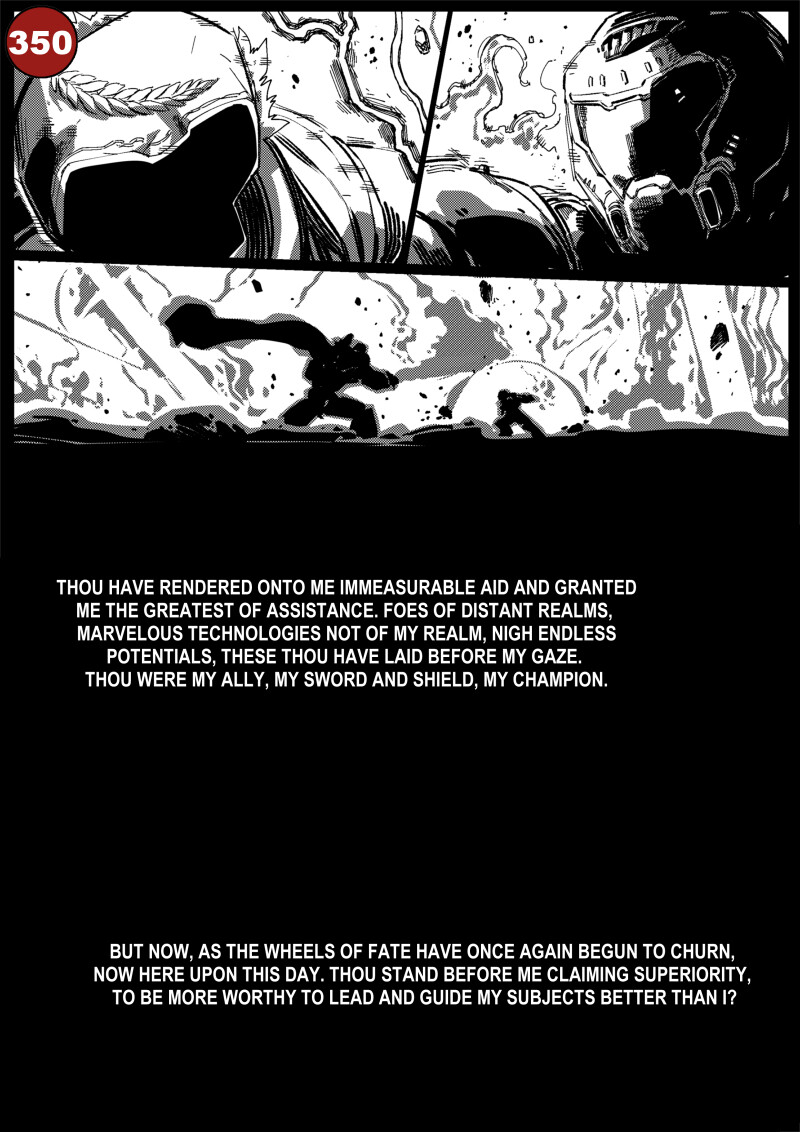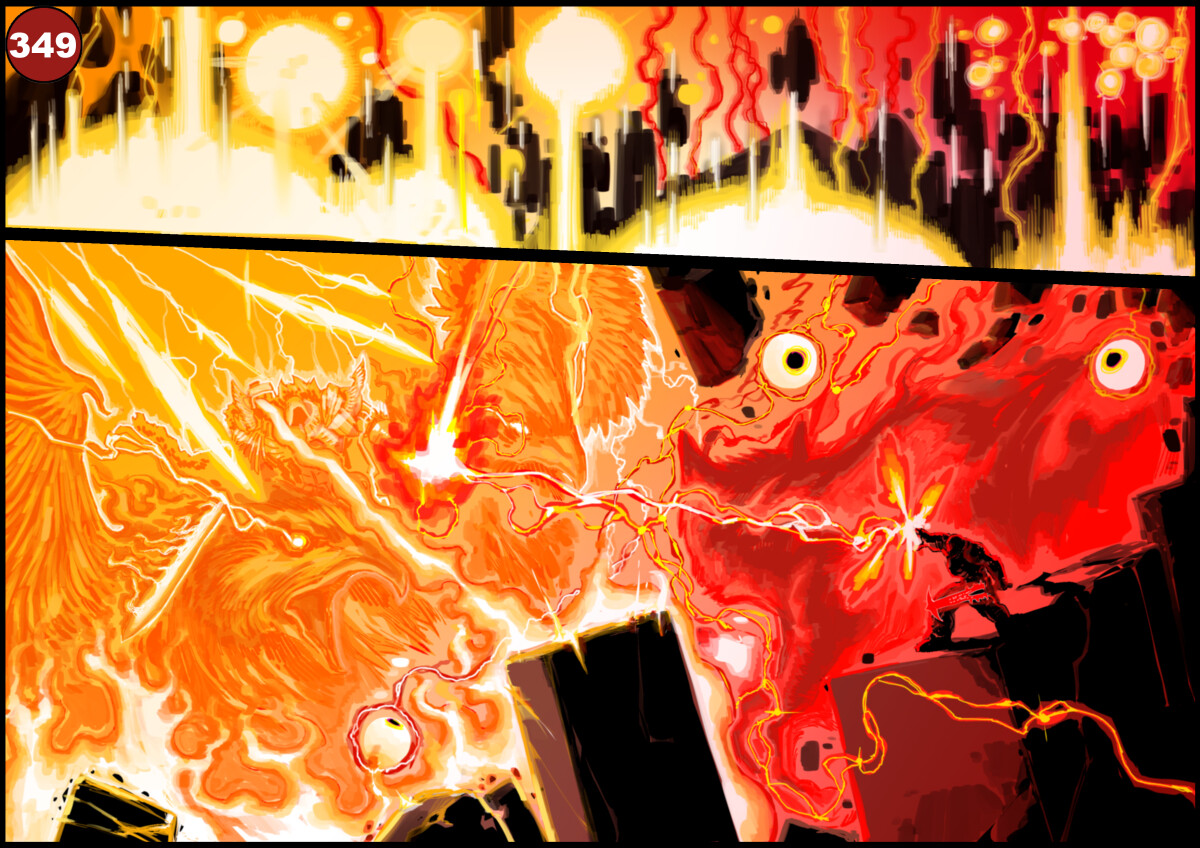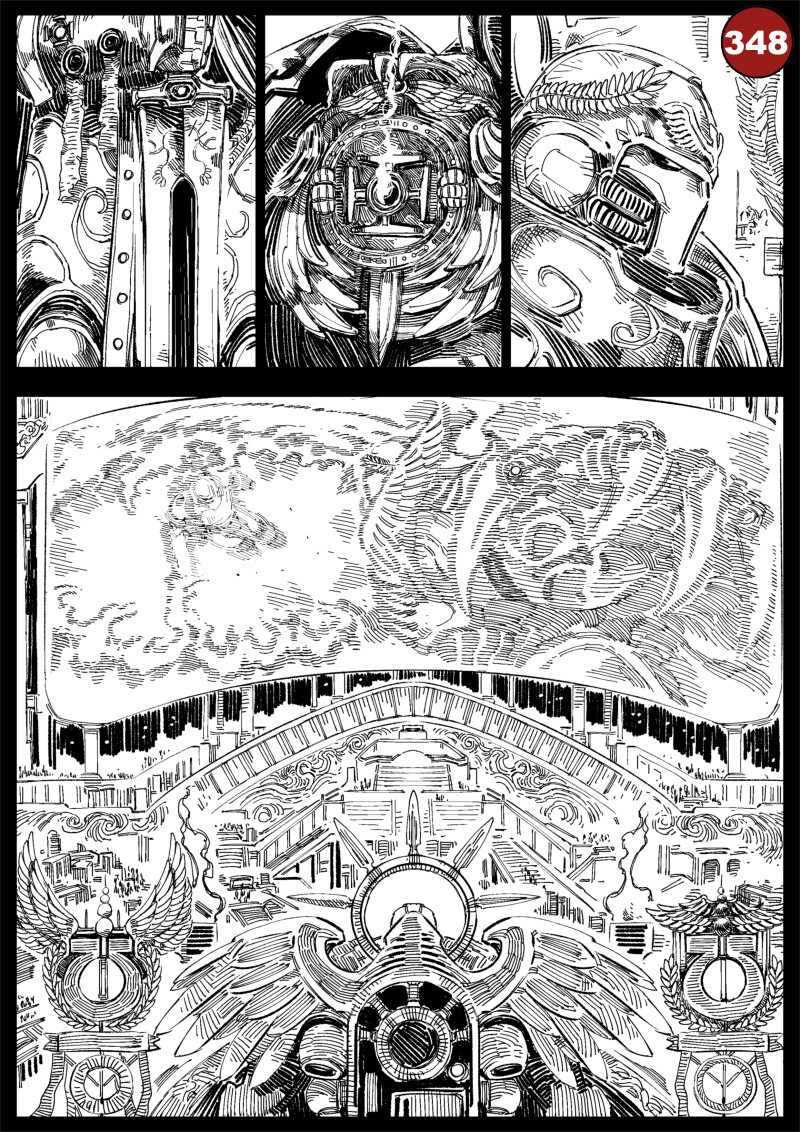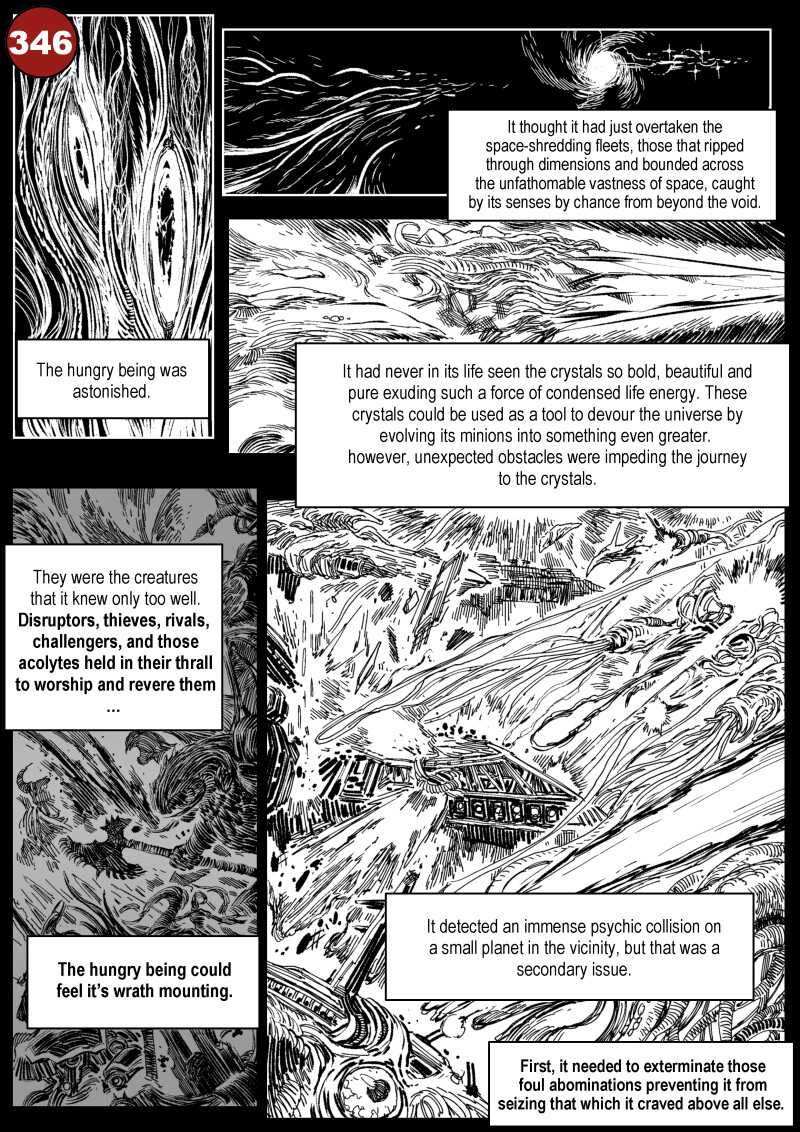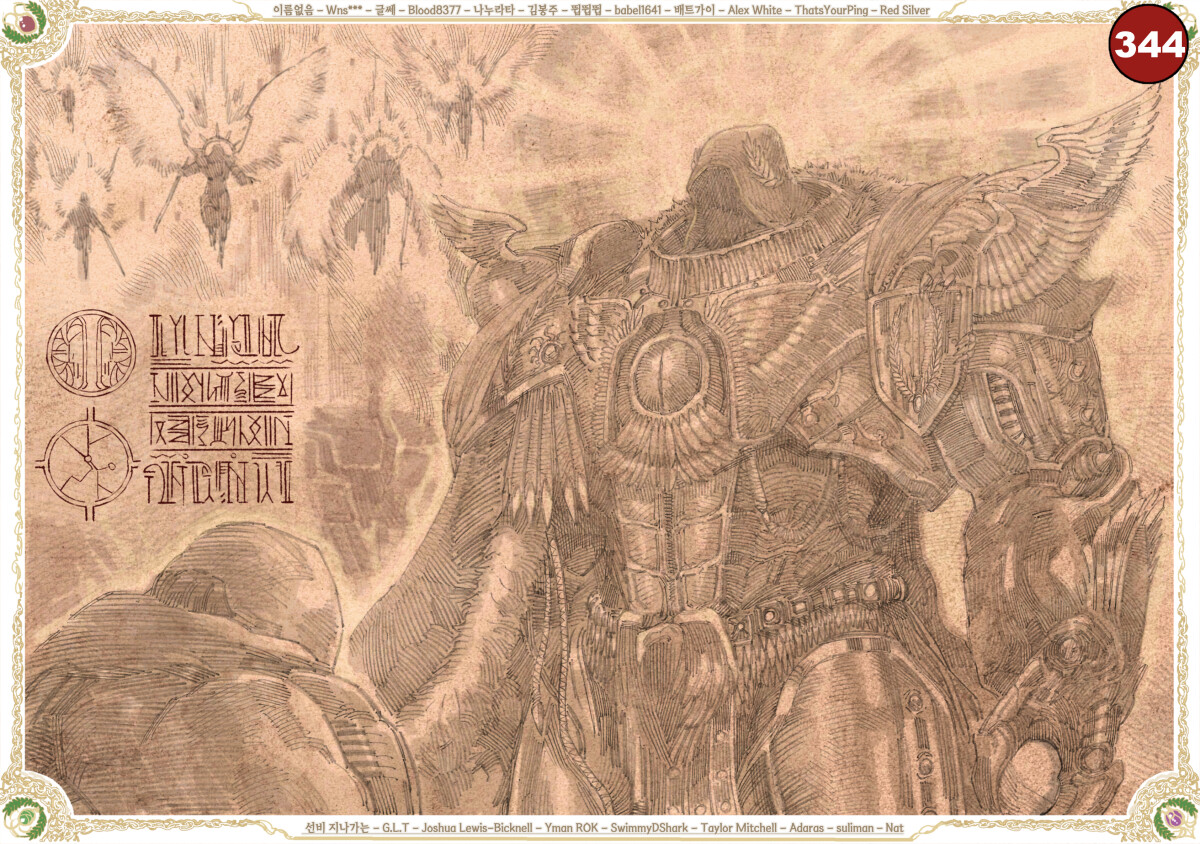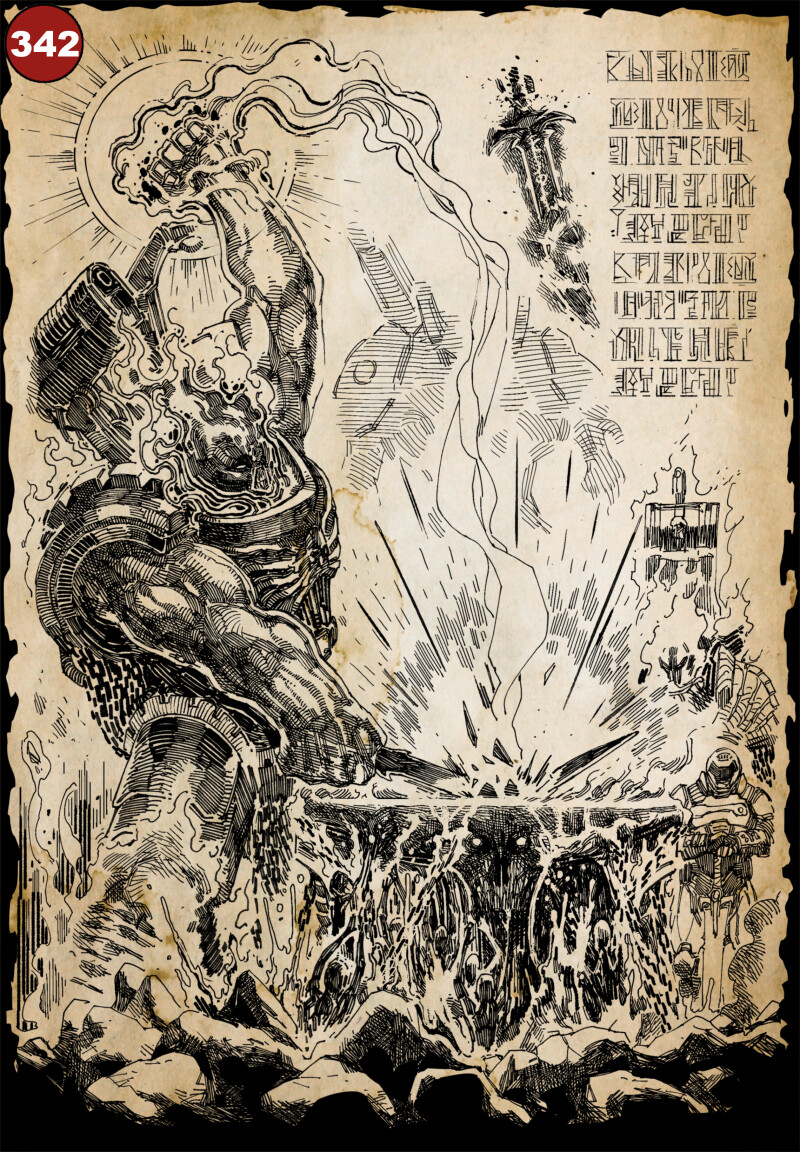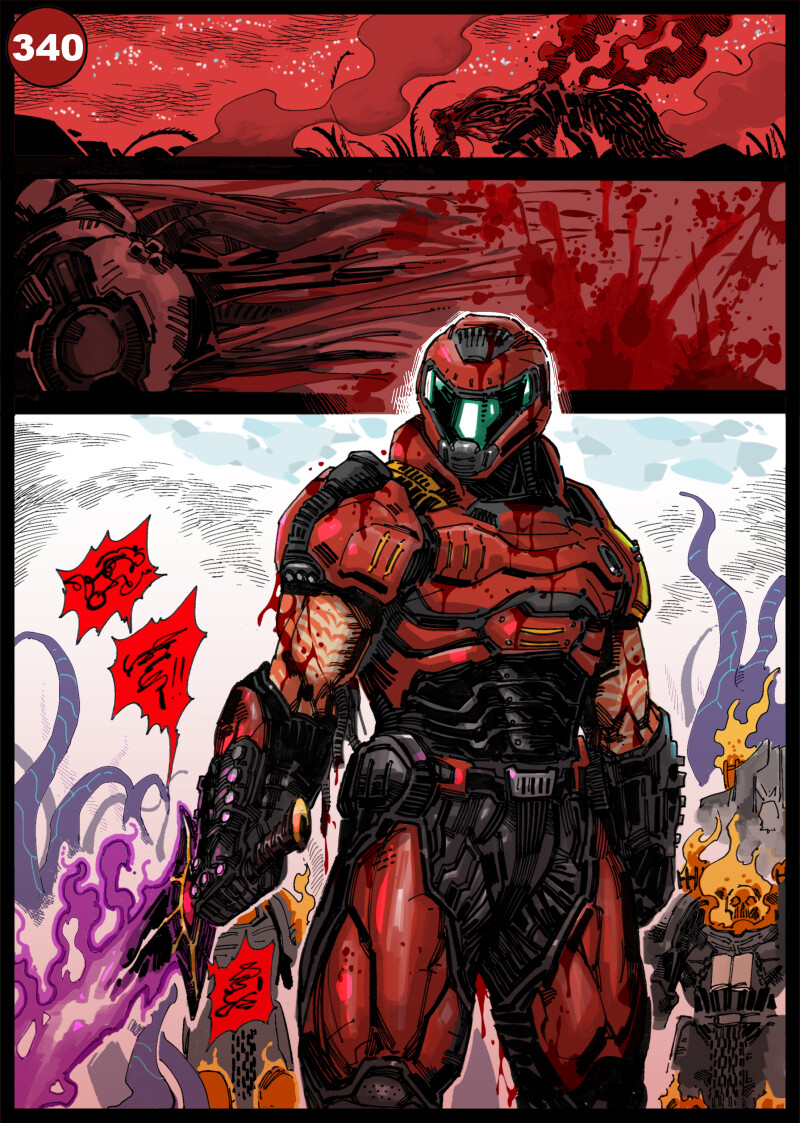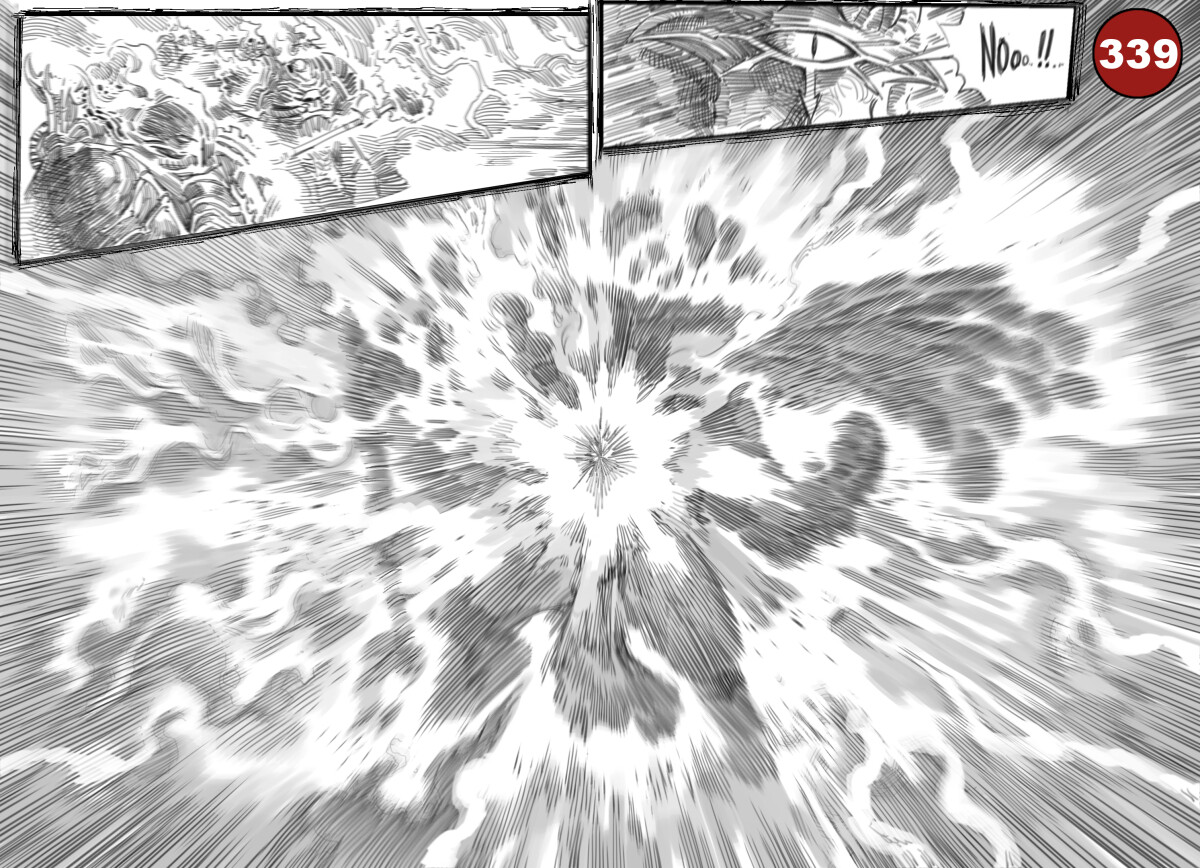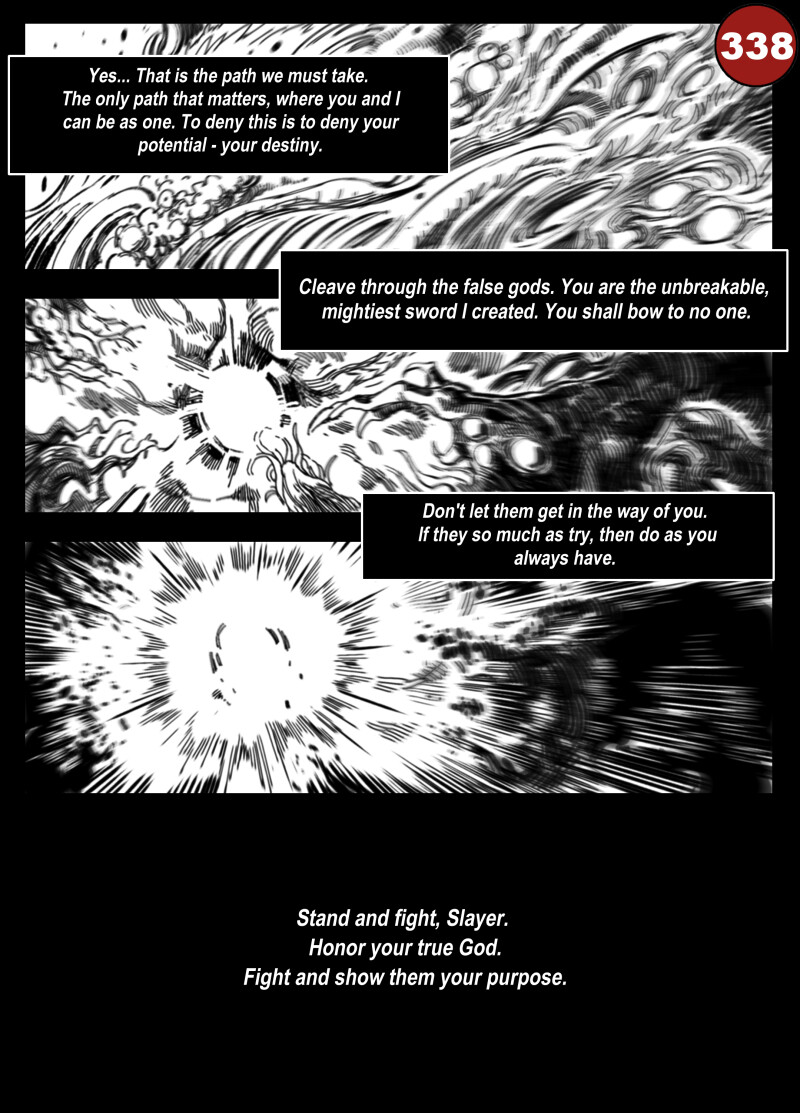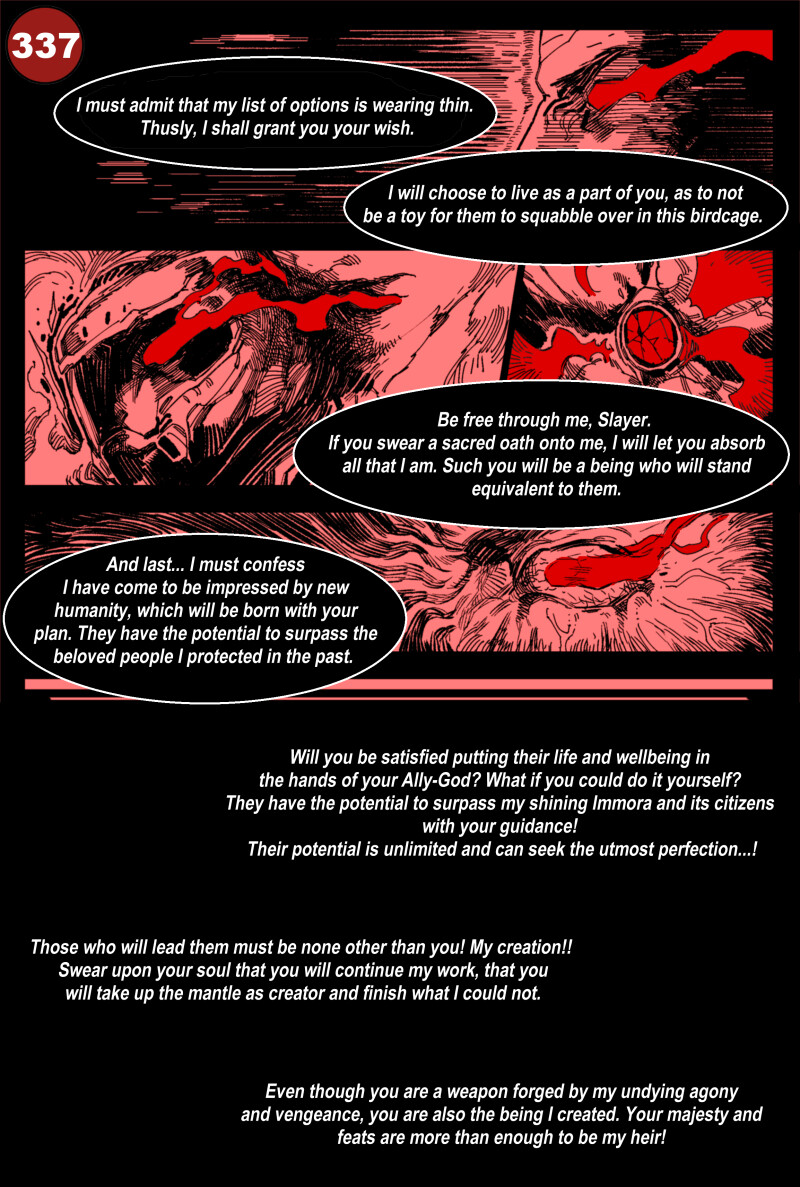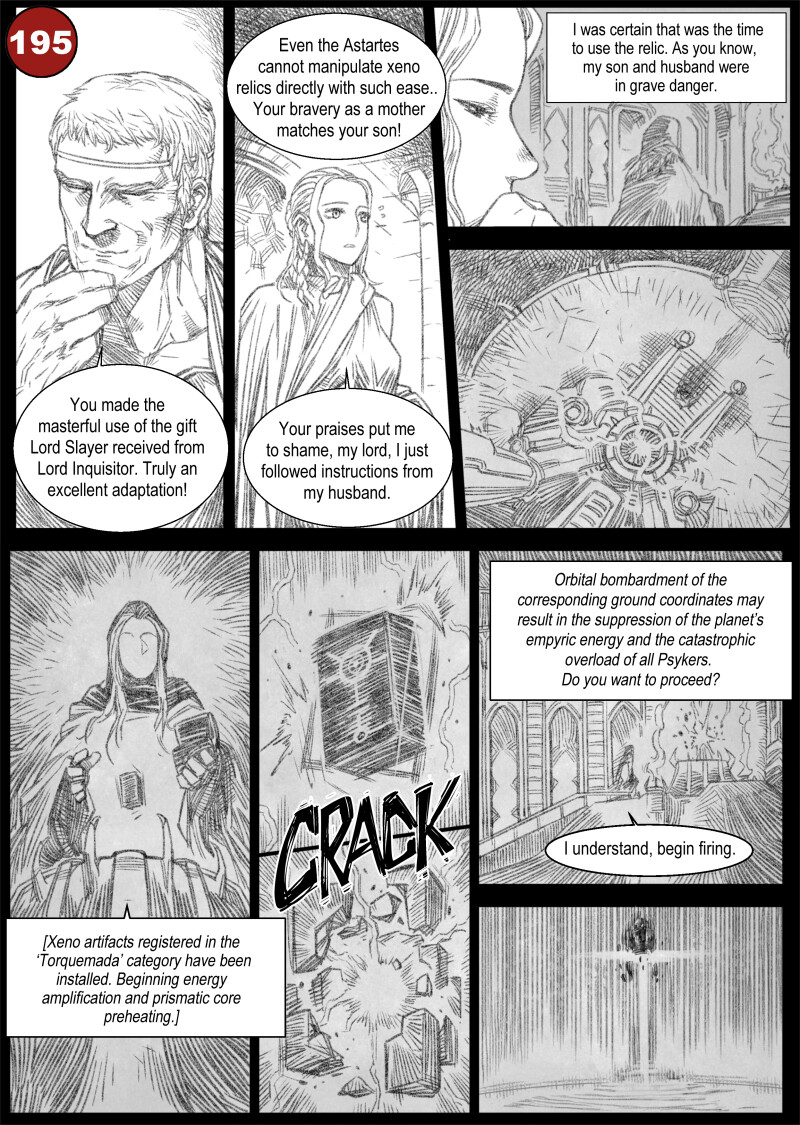
Guilliman’s Praise: A Mother’s Bravery and the Xeno Relic’s Wrath in Warhammer 40K
Roboute Guilliman’s Recognition
In this dramatic page from If Doom Slayer Joins the Imperium of Man, the man speaking with quiet admiration is none other than Roboute Guilliman, the Avenging Son and Lord Commander of the Imperium. He praises a civilian mother for her extraordinary bravery in activating a xeno relic—an act so difficult that even the Astartes themselves would struggle with it. Guilliman’s tone is respectful and fatherly, acknowledging the woman’s strength as equal to that of her son, a reflection of both Imperial valor and personal sacrifice. The woman humbly deflects the compliment, attributing her actions to her husband’s guidance, but Guilliman clearly sees the deeper courage within her. A panel showing her back, cloaked in shadow, reflects her inner turmoil as she recounts risking everything to save her family. Guilliman’s words are not just praise—they are a solemn affirmation of her worth in the Emperor’s eyes.
Ancient Relic and the Burden of Action
The scene transitions to the moment when the alien relic, gifted to Lord Slayer by a Lord Inquisitor, is brought online. Guilliman acknowledges the adaptation as masterful, evidence of tactical innovation and desperate ingenuity. The woman, bathed in radiant light, begins the activation sequence as the relic floats and crackles with forbidden power. The moment is captured with dynamic energy, especially as the artifact erupts with a loud “CRACK”, splitting the air with raw force. A mechanical voice reports the installation of “Torquemada category” xeno artifacts, initiating dangerous energy protocols. The visual chaos mirrors the emotional weight behind the act—activating such a device is both heresy and salvation in the Imperium’s grim reality.
Final Decision from a Son of the Emperor
Guilliman then listens to a machine’s dire warning: the orbital strike may suppress the warp’s influence, but it could also kill every psyker on the planet. The stakes are apocalyptic, yet Guilliman does not hesitate—he gives the order with cold certainty. His voice, calm and resolute, embodies the impossible decisions leaders must make in the 41st millennium. The final panel shows the devastating beam from orbit, pure and blinding, hammering down with calculated fury. It is a moment of grim necessity, one that Guilliman has long since accepted as part of the burden of command. In this page, we see not only the horror of war but also the deep, human moments of faith, love, and duty that persist even under the shadow of annihilation.


